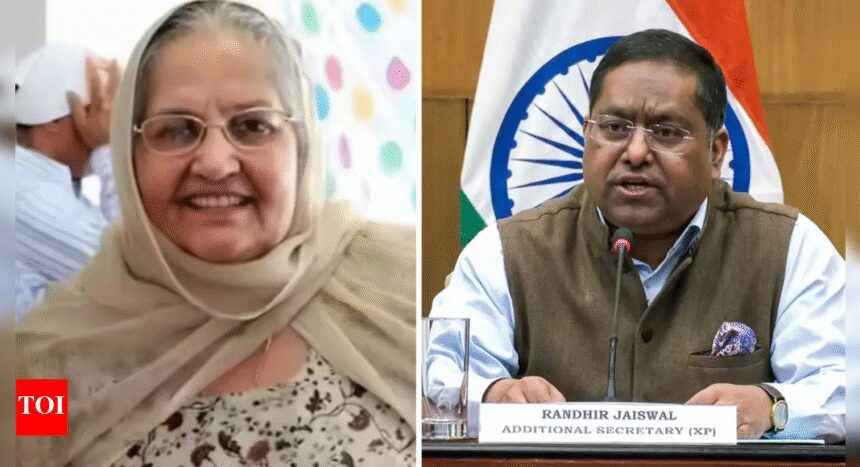NEW DELHI: The Ministry of External Affairs (MEA) on Friday provided an update regarding the deportation of Indian nationals from the United States during its weekly media briefing, emphasizing the recent return of 73-year-old Harjit Kaur. “Since January 2025, we have seen 2,417 Indian nationals deported or repatriated from the United States,” said MEA spokesperson Randhir Jaiswal, noting that Kaur recently returned as well.
Jaiswal stressed the importance of promoting legal migration pathways, while reiterating India’s stance against illegal migration. He elaborated that Indian authorities verify the nationality of individuals referred to them and facilitate their return only after confirming their documents and legal status. “Whenever a person lacks legal status in any country and is referred to India claiming to be an Indian national, we conduct a background check, verify their nationality, and arrange their return,” he explained.
Who is Harjit Kaur?
Harjit Kaur, a Sikh woman from Pangota village in Tarn Taran, Punjab, had resided in the United States for over 30 years. She moved there with her sons following her husband’s death. In the San Francisco Bay Area, she worked and had applied for asylum multiple times, all of which were denied. Her case gained significant attention in the U.S., prompting hundreds to rally in California for her release.
Harjit Kaur’s Deportation Case
Kaur was detained by U.S. Immigration and Customs Enforcement (ICE) during a routine immigration check on September 8. She was handcuffed and transported to Georgia under challenging conditions, without her family or attorney being notified. After approximately 48 hours in custody, ICE deported her to India.
Reflecting on her experience, Kaur stated, “After living there for so long, you are suddenly detained and deported this way; it is better to die than to face this. In such a situation, one should not live.” She recounted the ordeal, saying, “I was in handcuffs the entire time, I couldn’t sit properly, and no one informed my family.” Kaur described her journey as harrowing, highlighting insufficient food, water, and medical care.










